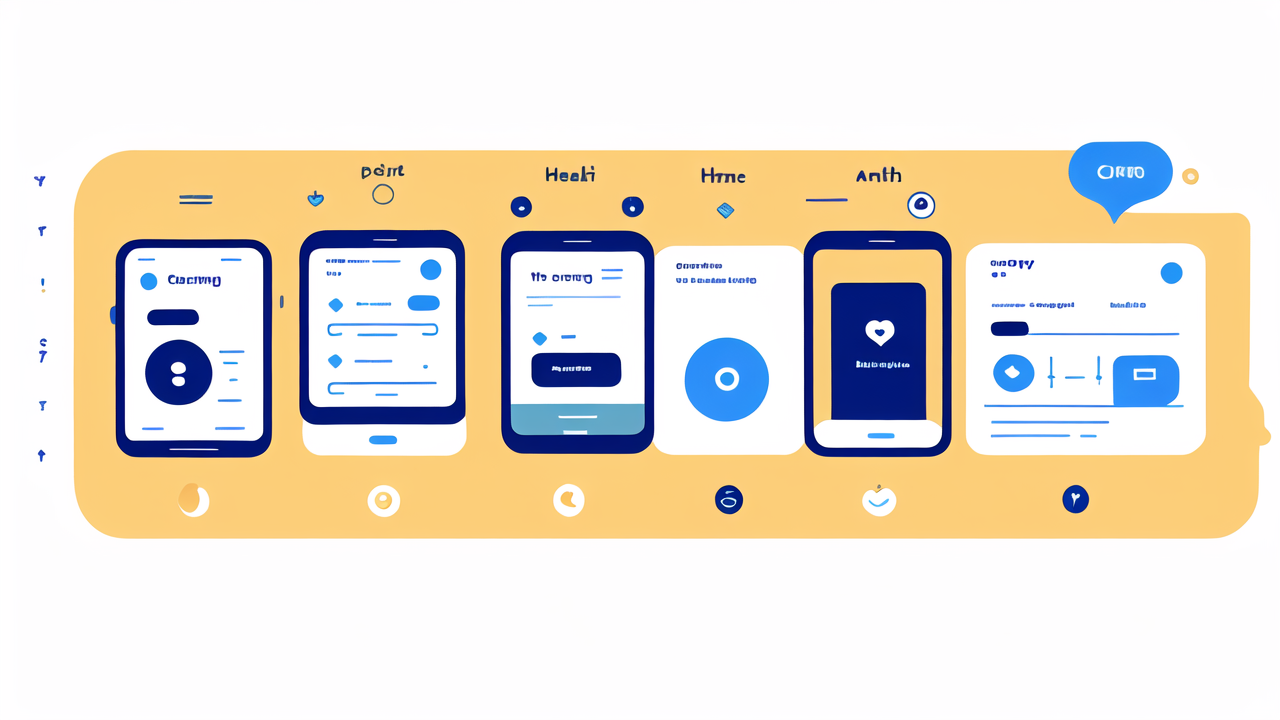Understanding the Role of Smartwatches in Healthcare
The Evolution of Health-Focused Wearables
Smartwatches have come a long way in the health tech world. They started as basic fitness trackers. Now, they're advanced health tools. Early models just counted steps. Today's smartwatches do much more. They monitor heart rates, track sleep, and even detect falls. This evolution has been rapid and impressive. It's changed how we view personal health care. Smartwatches are no longer just gadgets. They're becoming essential health devices. They offer real-time data on our bodies. This helps us make better health choices daily.

Key Features of Modern Smartwatches for Health
Modern smartwatches pack a punch when it comes to health features. Here are some key ones:
- Heart rate monitoring
- ECG readings
- Blood oxygen level tracking
- Sleep analysis
- Stress level detection
- Menstrual cycle tracking
- Fall detection and emergency alerts
These features turn smartwatches into mini health labs on our wrists. They provide data that was once only available at doctor's offices. Now, we can track our health 24/7. This constant monitoring can catch issues early. It empowers users to take charge of their health. Some watches even remind us to move or breathe deeply. This promotes overall wellness throughout the day.
Integration with Healthcare Systems
Smartwatches are becoming part of larger healthcare ecosystems. They can now share data with doctors and hospitals. This creates a more complete health picture. Patients can easily share their stats with healthcare providers. This leads to better-informed decisions about care. Some hospitals use smartwatch data for remote patient monitoring. This is especially helpful for chronic condition management. It allows doctors to spot trends or issues before they become serious. The integration is still growing. As it does, it promises to make healthcare more personalized and proactive.
Analyzing the Impact of Smartwatches on Consumer Behavior
Enhancing Daily Health Monitoring
Smartwatches have changed how we think about health daily. They make health tracking easy and constant. Users can see their stats anytime. This instant feedback affects behavior. People are more aware of their activity levels. They pay attention to their heart rates and sleep patterns. This awareness often leads to healthier choices. Someone might take the stairs after seeing low step counts. Another might go to bed earlier after noticing poor sleep quality. Smartwatches make health data personal and actionable. They turn abstract health goals into concrete, daily targets.

Motivating Lifestyle Changes through Data Insights
Data from smartwatches can be a powerful motivator. It shows users their progress over time. This can encourage them to stick to health goals. For example, seeing improved sleep scores can reinforce good bedtime habits. Watching heart rate variability improve can motivate continued exercise. Many smartwatches also use gamification. They set challenges and give rewards for meeting health goals. This turns health improvement into a fun, engaging activity. The data insights help users understand their bodies better. They can see how lifestyle changes affect their health metrics.
The Role of Smartwatches in Patient Engagement
Smartwatches are changing how patients engage with their health care. They provide a constant link to health information. This makes patients more active in their care. They can track symptoms and medication effects easily. This leads to more informed discussions with doctors. Smartwatches also send reminders for medications or appointments. This improves adherence to treatment plans. For chronic conditions, smartwatches offer ongoing support. They help patients manage their conditions day-to-day. This increased engagement can lead to better health outcomes.
Future Trends in Smartwatch Technology for Health
Innovations in Smartwatch Features
The future of smartwatch health features looks exciting. We're likely to see even more advanced sensors. These could include:

- Non-invasive blood glucose monitoring
- Blood pressure tracking without a cuff
- Hydration level sensing
- More detailed sleep analysis, including REM cycles
- Enhanced mental health monitoring
These features could make smartwatches even more crucial for health management. They might detect health issues before symptoms appear. This could lead to earlier interventions and better outcomes. We may also see more personalized health recommendations. AI could analyze data to suggest tailored lifestyle changes. The goal is to make smartwatches even more proactive in health care.
Interoperability and Data Synergization
Future smartwatches will likely work better with other devices and systems. They'll share data more seamlessly with healthcare providers. This could create a more complete health profile for each user. Smartwatches might sync with smart home devices for better health insights. For example, they could connect with air quality sensors or smart scales. This would give a fuller picture of health and environment. Better data sharing could also improve medical research. With user consent, smartwatch data could help in large-scale health studies.
Regulatory Considerations and the Future of Health Wearables
As smartwatches become more advanced, regulations will need to keep up. There are concerns about data privacy and accuracy. Regulators will need to ensure these devices are safe and effective. They'll also need to address how this data is used and shared. This could lead to new standards for health wearables. We might see more smartwatches getting medical device certifications. This could increase their use in clinical settings. The challenge will be balancing innovation with safety and privacy. The future of health wearables depends on striking this balance right.




Leave a comment
This site is protected by hCaptcha and the hCaptcha Privacy Policy and Terms of Service apply.